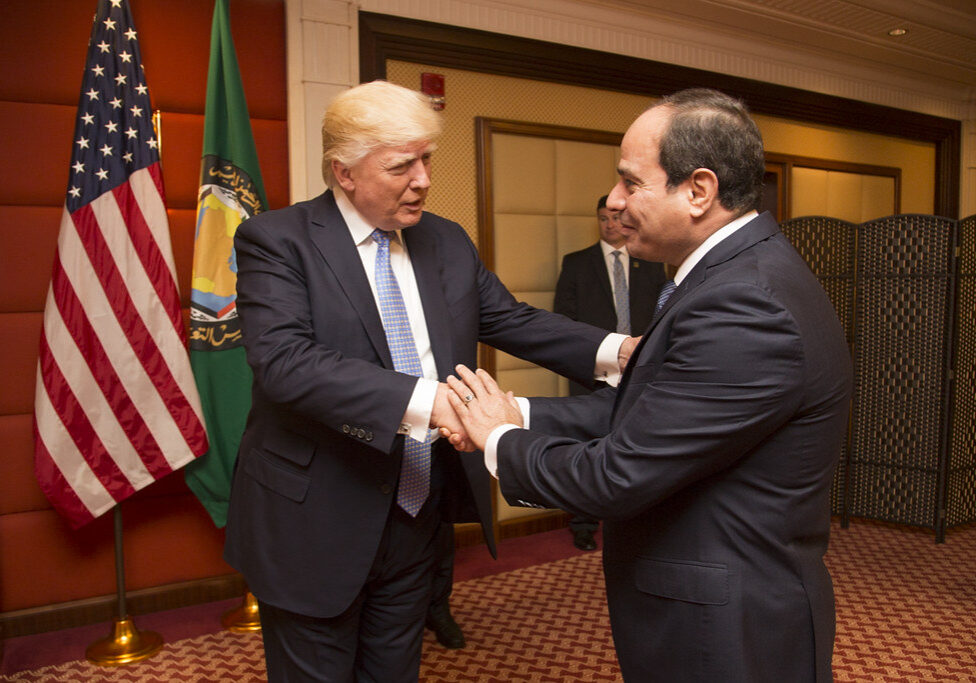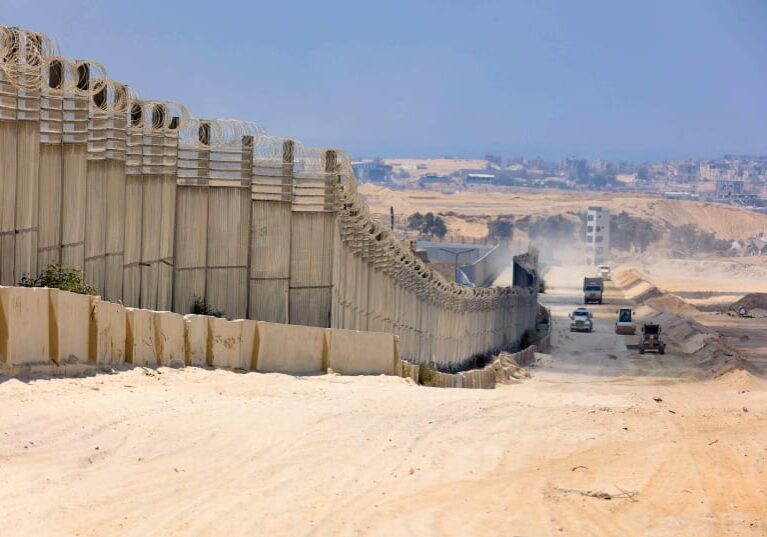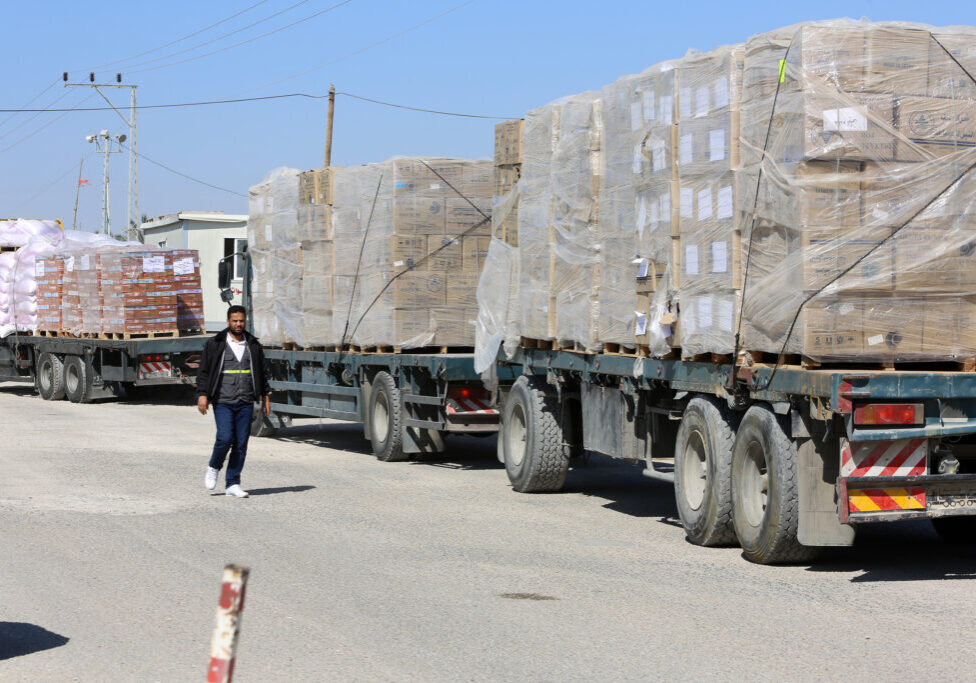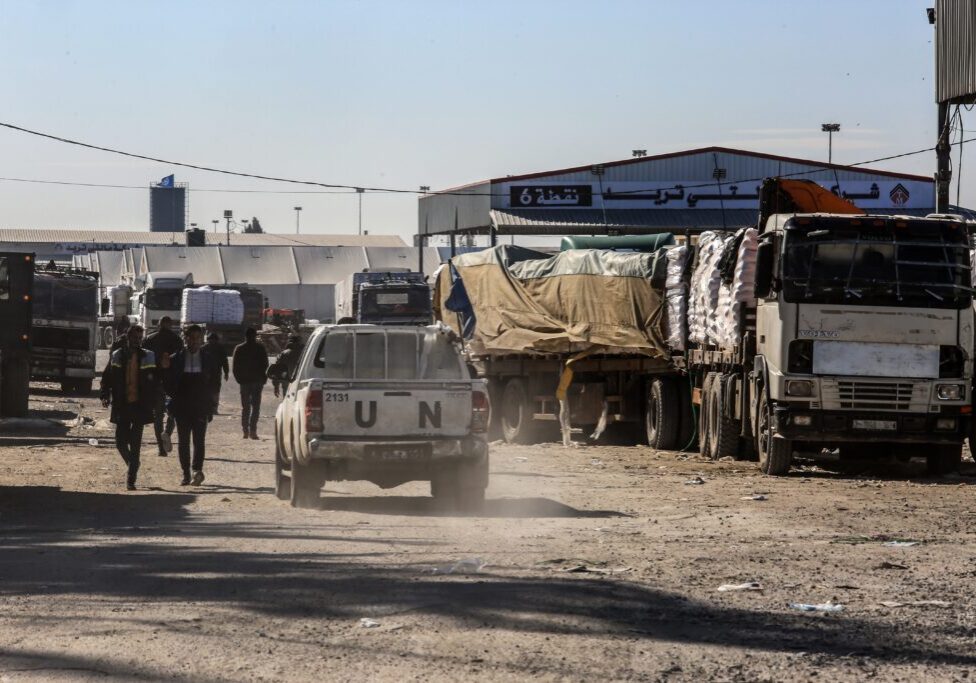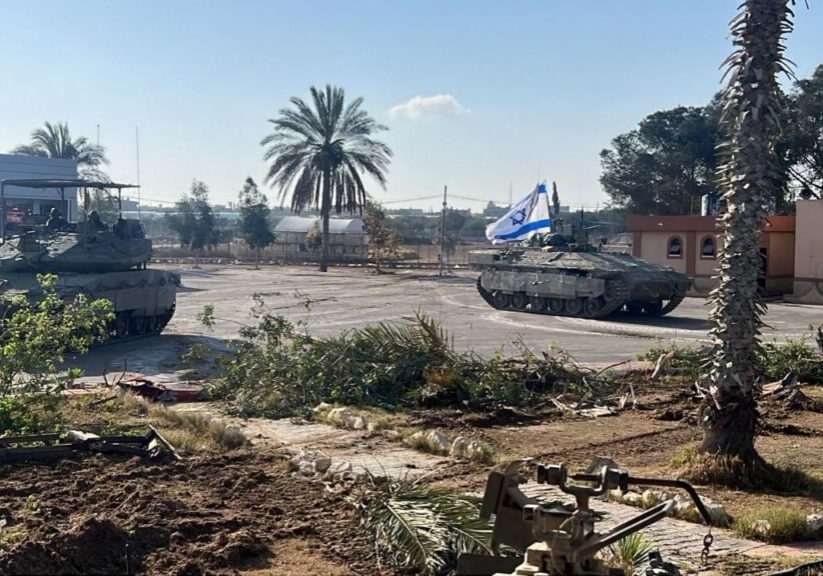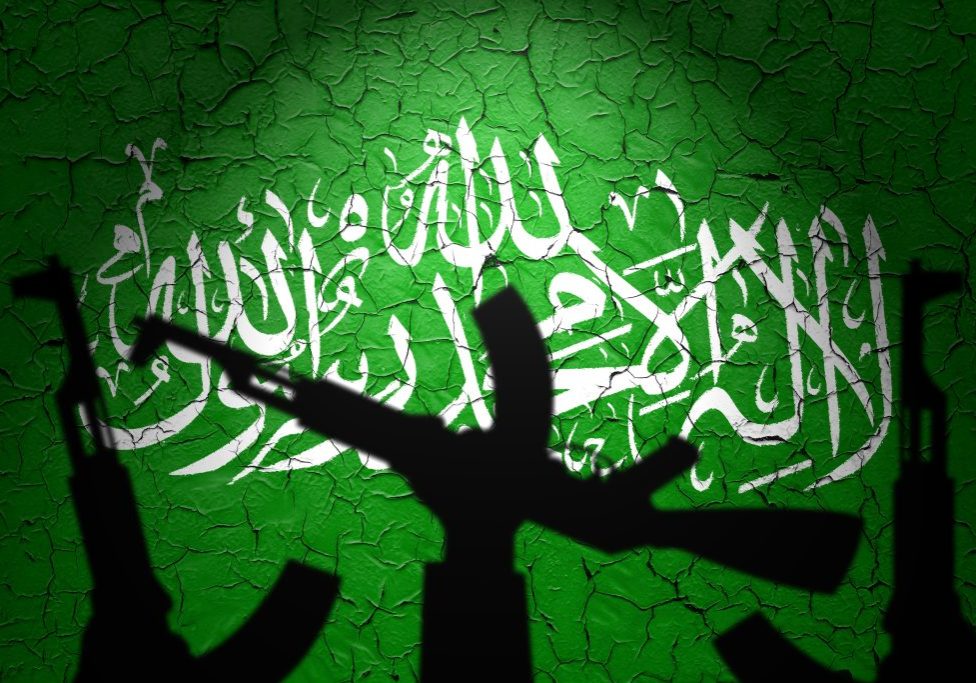Australia/Israel Review
The Making of the New Middle East
Mar 29, 2011 | David Horovitz
By David Horovitz
Bernard Lewis, the renowned Islamic scholar, believes that at the root of the protests sweeping across the Middle East is the Arab peoples’ widespread sense of injustice. “The sort of authoritarian, even dictatorial regimes, that rule most of the countries in the modern Islamic Middle East, are a modern creation,” he notes. “The pre-modern regimes were much more open, much more tolerant.”
But Lewis regards a dash toward Western-style elections, far from representing a solution to the region’s difficulties, as constituting “a dangerous aggravation” of the problem, and fears that radical Islamic movements would be best placed to exploit so misguided a move. A much better course, he says, would be to encourage the gradual development of local, self-governing institutions, in accordance with the Islamic tradition of “consultation”.
Once described as the most influential post-war historian of Islam and the Middle East, Lewis, 94, set out his thinking on the current Middle East ferment in a conversation with me in late February.
Q: Does the current wave of protest in the region indicate that, in fact, the Arab masses do want democracy? And is that what we’re going to see unfolding now?
A: The Arab masses certainly want change. And they want improvement. But when you say do they want democracy, that’s a more difficult question to answer. What does “democracy” mean? It’s a word that’s used with very different meanings, even in different parts of the Western world. And it’s a political concept that has no history, no record whatever in the Arab, Islamic world.
In the West, we tend to get excessively concerned with elections, regarding the holding of elections as the purest expression of democracy, as the climax of the process of democratisation. Well, the second may be true – the climax of the process. But the process can be a long and difficult one. Consider, for example, that democracy was fairly new in Germany in the inter-war period and Hitler came to power in a free and fair election.
We, in the Western world particularly, tend to think of democracy in our own terms – that’s natural and normal – to mean periodic elections in our style. But I think it’s a great mistake to try and think of the Middle East in those terms and that can only lead to disastrous results, as you’ve already seen in various places. They are simply not ready for free and fair elections.
One of the most moving experiences of my life was in the year 1950, most of which I spent in Turkey. That was the time when the Turkish government held a free and genuinely fair election – the election of 1950 – in which that government was defeated, and even more remarkably the government then quietly and decently withdrew from power and handed over power to the victorious opposition.
What followed I can only describe as catastrophic. Adnan Menderes, the leader of the party which won the election, which came to power by their success in the election, soon made it perfectly clear that he had no intention whatever of leaving by the same route by which he had come, that he regarded this as a change of regime, and that he had no respect at all for the electoral process…
This happened again and again and again. You win an election because an election is forced on the country. But it is seen as a one-way street. Most of the countries in the region are not yet ready for elections.
Yet in Egypt now, for example, the assumption is that we’re proceeding toward elections in September and that seems to be what the West is inclined to encourage.
I would view that with mistrust and apprehension. If there’s a genuinely free election – assuming that such a thing could happen – the religious parties have an immediate advantage. First, they have a network of communication through the preacher and the mosque which no other political tendency can hope to equal. Second, they use familiar language. The language of Western democracy is for the most part newly translated and not intelligible to the great masses.
In genuinely fair and free elections, [the Islamist parties] are very likely to win and I think that would be a disaster. A much better course would be a gradual development of democracy, not through general elections, but rather through local self-governing institutions. For that, there is a real tradition in the region.
If you look at the history of the Middle East in the Islamic period, and if you look at their own political literature, it is totally against authoritarian or absolutist rule. The word they always insist on is consultation…
You have this traditional system of consultation with groups which are not democratic as we use that word in the Western world, but which have a source of authority other than the state – authority which derives from within the group, whether it be the landed gentry or the civil service, or the scribes or whatever. That’s very important. And that form of consultation could be a much better basis for the development of free and civilised government.
Yet the sense one gets is that the people in the streets, in Egypt, for example, want to have elections quickly and have a new leadership. That is the signal that they’re sending. Won’t it be supercilious and arrogant of the West to try to talk them out of it?
They’re all agreed that they want to get rid of the present leadership, but I don’t think they’re agreed on what they want in its place. For example, we get very, very different figures as to the probable support for the Muslim Brothers.
Broadly speaking, the notion of the Muslim Brotherhood, which is much disputed – from being perceived as essentially benign, unthreatening, even secular, according to one remark (later corrected, by US National Intelligence Director James Clapper), to being perceived as a radical and terrible threat. How would you judge it?
To say that they’re secular would show an astonishing ignorance of the English lexicon. I don’t think [the Muslim Brotherhood in Egypt] is in any sense benign. I think it is a very dangerous, radical Islamic movement. If they obtain power, the consequences would be disastrous for Egypt.
I’m an historian. My business is the past, not the future. But I can imagine a situation in which the Muslim Brotherhood and other organisations of the same kind obtain control of much of the Arab world. It’s not impossible. I wouldn’t say it’s likely, but it’s not unlikely.
And if that happens, they would gradually sink back into medieval squalor.
Remember that according to their own statistics, the total exports of the entire Arab world other than fossil fuels amount to less than those of Finland, one small European country. Sooner or later the oil age will come to an end. Oil will be either exhausted or superseded as a source of energy and then they have virtually nothing.
As we look at this region in ferment, how would you characterise what is unfolding now? Can we generalise about the uprisings that are erupting in the various countries? Is there a common theme?
There’s a common theme of anger and resentment. And the anger and resentment are universal and well-grounded. They come from a number of things. First of all, there’s the obvious one – the greater awareness that they have, thanks to modern media and modern communications, of the difference between their situation and the situation in other parts of the world. I mean, being abjectly poor is bad enough. But when everybody else around you is pretty far from abjectly poor, then it becomes pretty intolerable.
Another thing is the sexual aspect of it. One has to remember that in the Muslim world, casual sex, Western-style, doesn’t exist. If a young man wants sex, there are only two possibilities – marriage and the brothel. You have these vast numbers of young men growing up without the money, either for the brothel or the bride-price, with raging sexual desire. On the one hand, it can lead to the suicide bomber, who is attracted by the virgins of paradise – the only ones available to him. On the other hand, sheer frustration.
So you have this explosion, which different regimes are handling in very different ways. Were you surprised with the ease with which, in Tunisia and Egypt, autocratic leaders were ousted? Do you see other countries where a similar process is likely to unfold?
I was expecting a wave of such movements. I didn’t think it would be as quick and easy as it was in Egypt. But I expect that there will be more. We can see in so many countries, the regimes are already gravely in danger.
In Iran, the stakes are much higher. It requires much more courage to go out on the street when the regime is presumably prepared to go to greater lengths to hold onto power. Do you see these kinds of processes taking hold in the more repressive and ruthless regimes?
As far as one can judge, these movements of opposition are very strong, even in Iran for example. Now, as you say, the Iranian regime is very repressive. Nevertheless, there are ways in which people can communicate, notably by telephone, e-mail and the rest, and the messages coming out of Iran are unequivocal. It makes it clear that the regime is extremely unpopular. There are two oppositions, opposition to the regime, and opposition within the regime. I think that with even a little help from outside it would be possible to do something. As the saying goes, “You can’t beat something with nothing.”
A little help from outside? It’s a subtle process. If the help is overt, it can be used by the regime in Iran, for example, to suggest unwarranted and untenable Western influence. How do you give help to people seeking the overthrow of these regimes?
One method is by political warfare, by having some sort of propaganda campaign against the regime. This would not be difficult. There’s a vast Iranian population now in the Western world, particularly in the United States, who I’m sure would be willing to help in this, and thanks to modern communications, it would not be too difficult to get the message across. The messages coming out of Iran make this very clear. You must have heard when the American forces went into Iraq, lots of Iranians wrote e-mails or telephoned, saying, “You should have tackled your problems in alphabetical order.”
Tell us more about the nature of the Arab masses, their sense of their own religion, their sense of the agenda that Islam sets out for them.
Well, you see, two things have happened. One is that their position on the whole has been getting worse. The second, which is much more important, is that their awareness of that is getting much greater. As I said before, thanks to modern communications, they can now compare their own position with that in other countries. And they don’t have to look very far to do that. I have sat with friends in Arab countries, watching Israeli television, and their responses to that are mindboggling.
What is so striking to them?
One particular instance that I remember: There was a little Arab boy whose arm was broken by an Israeli policeman during a demonstration and he appeared the next day on Israeli television with a bandage on his arm, denouncing Israeli brutality. I was in Amman at the time, watching this. And sitting next to me was an Iraqi, who had fled Saddam Hussein’s Iraq, and he looked at this with his jaw dropping and he said, “I would gladly let Saddam Hussein break both my arms and both my legs if he would let me talk like that on Iraqi television.”
Take us a little deeper into the mindset. Help us reconcile the discord in Egypt, for example, between hundreds and thousands of people coming out onto the streets and demanding to be rid of a dictatorial leadership, which most people in the West have interpreted as a push for freedoms and Western-style democracy, at the same time as we read opinion surveys which show overwhelming proportions of Egyptians taking very bleak views on some aspects of human rights, supporting terrible punishments for adultery, benighted attitudes to homosexuality and so on.
It’s not easy to define what they are for. It’s much easier to define what they are against. They are against the present tyrannies, which as they see it, not only oppress them, but dishonour their name, their religion, their nationality. They want to see something better in its place. Now what that something better would be is differently defined. They are not usually talking in terms of parliamentary democracy and free elections and so on. That’s not part of the common discourse. For different groups it means different things. But usually, it’s religiously defined. That doesn’t necessarily mean the Muslim Brothers’ type of religion. There is also an Islamic tradition which is not like that – as I referred to earlier, the tradition of consultation…
If we have different potential Islamic paths that these peoples could now go down, how strong is a more moderate Muslim tradition? How likely is it that that would prevail? I ask you that because of your bleak characterisation of the Muslim Brotherhood which, again, some experts claim is relatively benign.
I don’t know how one could get the impression that the Muslim Brotherhood is relatively benign unless you mean relatively as compared with the Nazi party.
There are other trends within the Islamic world which look back to their own glorious paths and think in other terms. There is a great deal of talk nowadays about consultation. That is very much part of the tradition.
The sort of authoritarian, even dictatorial regimes, that rule most of the countries in the modern Islamic Middle East, are a modern creation. They are a result of modernisation. The pre-modern regimes were much more open, much more tolerant. You can see this from a number of contemporary descriptions. And the memory of that is still living.
Are you leading toward the possibility that the unraveling of these modern, non-consultative regimes could return us to a genuine, potential, wider people to- people partnership between the Muslim world and the West? And if so, how do we go about achieving that?
The only time when they began to look favourably on outside alliances is when they see themselves as confronting a still greater danger. Sadat didn’t make peace because he was suddenly convinced of the merits of the Zionist case. Sadat made peace because Egypt was becoming a Soviet colony. He realised that on the best estimate of Israel’s power and on the worst estimate of Israel’s intentions, Israel was much less of a danger to Egypt than the Soviet Union at that time. That is why he set to work to make peace, and he was, of course, right.
One sees similar calculations later than that. Consider for example, the battle between the Israeli forces and Hezbollah in 2006. It was quite clear that the Arab governments were quietly cheering the Israelis and hoping that they would finish the job and were very disappointed when they failed to finish the job. The best way of attaining friendship is by confronting a yet more dangerous enemy. There have been several such [enemies] in the Middle East and there are several at the present time. That seems to me the best hope of understanding between the Arabs on the one hand and either the West or the Israelis on the other hand.
People talk about American imperialism as a danger. That is absolute nonsense.
People who talk about American imperialism in the Middle East either know nothing about America or know nothing about imperialism. American imperialism is a term which might justly be used to describe some of the processes by which the original 13 states increased to the present 50. But as applied to American policy in the Middle East at the present time, it is wrong to the point of absurdity…
When you look around the region, which are the potential enemies which may be regarded as the greater threat?
At the moment, principally the Iranian revolution. On the one hand they’re afraid of what you might call Iranian imperialism, and on the other hand of the Iranian Shi’ite revolution.
The Sunni-Shi’ite question is obviously different according to which country you’re in. In a country like Iraq or Syria, where you have both Sunnis and Shi’ites, the distinction between Sunni and Shi’ites, the clashes between them, are very important. In a country like Egypt where there are no Shi’ites, which is 100% Sunni, it’s not an important issue. They don’t see the Shi’ite threat as an issue.
There’s one other group of people that I think one should bear in mind when considering the future of the Middle East, and that is women. The case has been made, and I think there is some force in it, that the main reason for the relative backwardness of the Islamic world compared to the West is the treatment of women. As far as I know, it was first made by a Turkish writer called Namik Kemal in about 1880. At that time an agonising debate had been going on for more than a century: What went wrong? Why did we fall behind the West?
He said, “The answer is very clear. We fell behind the West because of the way we treat our women. By the way we treat our women we deprive ourselves of the talents and services of half the population. And we submit the early education of the other half to ignorant and downtrodden mothers.”
It goes further than that. A child who grows up in a traditional Muslim household is accustomed to authoritarian, autocratic rule from the start. I think the position of women is of crucial importance.
That is why I am looking with great interest at Tunisia. Tunisia is the one Arab country that has really done something about women. In Tunisia there is compulsory education for girls, from primary school, right through. In Tunisia, women are to be found in the professions… Women play a significant part in public life in Tunisia. I think that is going to have an enormous impact…
Elsewhere, the question of women and the role of the women is of crucial importance for the future of the Muslim world in general.
A key country which has not been enveloped in these uprisings yet is Saudi Arabia. Why do you think that is? Is that going to change?
There’s not much prospect of its changing for the time being. But sooner or later oil will be either exhausted or superseded, and then of course the change will be dramatic.
Two weeks ago, I interviewed Natan Sharansky. He gave an enthusiastic endorsement of the push for freedom. But a caveat was: Don’t have this sense that elections equals democracy. Therefore, his recipe was: Go slower. But he still seemed to be pushing in the Western, democratic direction. He was saying, you need to take time; you need to create a climate in which opposition parties can organise, other parties can organise, so you don’t only have the Muslim Brotherhood; you need to have a media environment in which their message can be fairly reported; and then people have to be confident that they can make their choices without fear of persecution. That sounds very smart to me, but it also sounds very Western. Are you suggesting that might be a path or that it fails to understand the differences between the West and the Muslim world?
One has to understand not so much the differences between the two as the differences in the political discourse. In the Western world, we talk all the time about freedom. In the Islamic world, freedom is not a political term. It’s a legal term: Freedom as opposed to slavery. This was a society in which slavery was an accepted institution existing all over the Muslim world. You were free if you were not a slave. It was entirely a legal and social term, with no political connotation whatsoever.
You can see in the ongoing debate in Arabic and other languages the puzzlement with which the use of the term freedom was first perceived. They just didn’t understand it. I mean, what does this have to do with politics or government? …
The major contrast is not between freedom and tyranny, between freedom and servitude, but between justice and oppression. Or if you like, between justice and injustice. If one follows that particular discourse in the Arab and more generally the Muslim world, it would be more illuminating.
So while we look at these protests as a demand for a greater stake in self-government and a push for what we consider to be freedoms, what you’re diagnosing here is outrage against injustice?
Right.
And how is that demand met?
Corruption and oppression are corruption and oppression by whichever system you define them. There’s not much difference between their definition of corruption and our definition of corruption.
So, if the leaderships in these countries were not corrupt and were just, they would not have been confronted? It’s that they’ve not governed fairly?
Yes.
And so to the Israel question. Israel, like everybody else, was taken completely by surprise. How should Israel be responding to these protests?
Watch carefully, keep silent, make the necessary preparations. And reach out. Reach out. This is a real possibility nowadays.
There are increasing numbers of people in the Arab world who look with, I would even say, with wonderment at what they see in Israel, at the functioning of a free and open society. I read an article quite recently by a Palestinian Arab whom I will not endanger by naming, in which he said that “as things stand in the world at the present time, the best hope that an Arab has for his future is as a second class citizen of a Jewish state.” A rather extraordinary statement coming from an Arab spokesman. But if you think about it, he’s not far wrong. The alternative, being in an Arab state, is very much worse. They certainly do better as second class citizens of the Jewish state. There’s a growing realisation of that. People would speak much more openly about that if it were safe to do so, which it obviously isn’t.
There are two things which I think are helpful towards a better understanding between the Arabs and Israel. One of them is the well-known one, of the perception of a greater danger, which I mentioned before. Sadat turned to Israel because he saw that Egypt was becoming a Russian colony. The same thing has happened again on a number of occasions. Now they see Israel as a barrier against the Iranian threat.
The other one, which is less easy to define but in the long run is probably more important, is [regarding Israel] as a model of democratic government. A model of a free and open society with rights for women – an increasingly important point, especially in the perception of women.
In both of these respects I think that there are some hopeful signs for the future.
David Horovitz is editor of the Jersualem Post. © Jerusalem Post, reprinted by permission, all rights reserved.
Tags: Egypt

